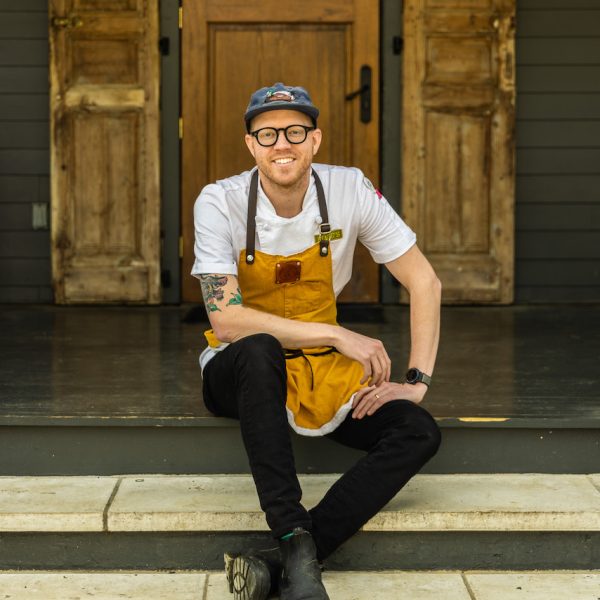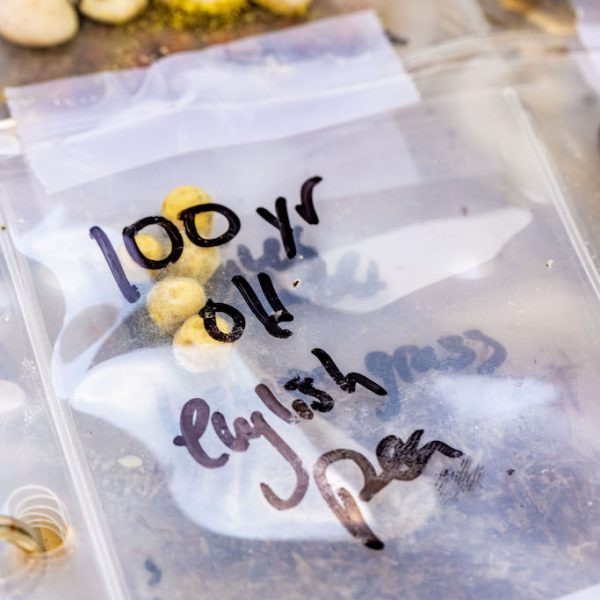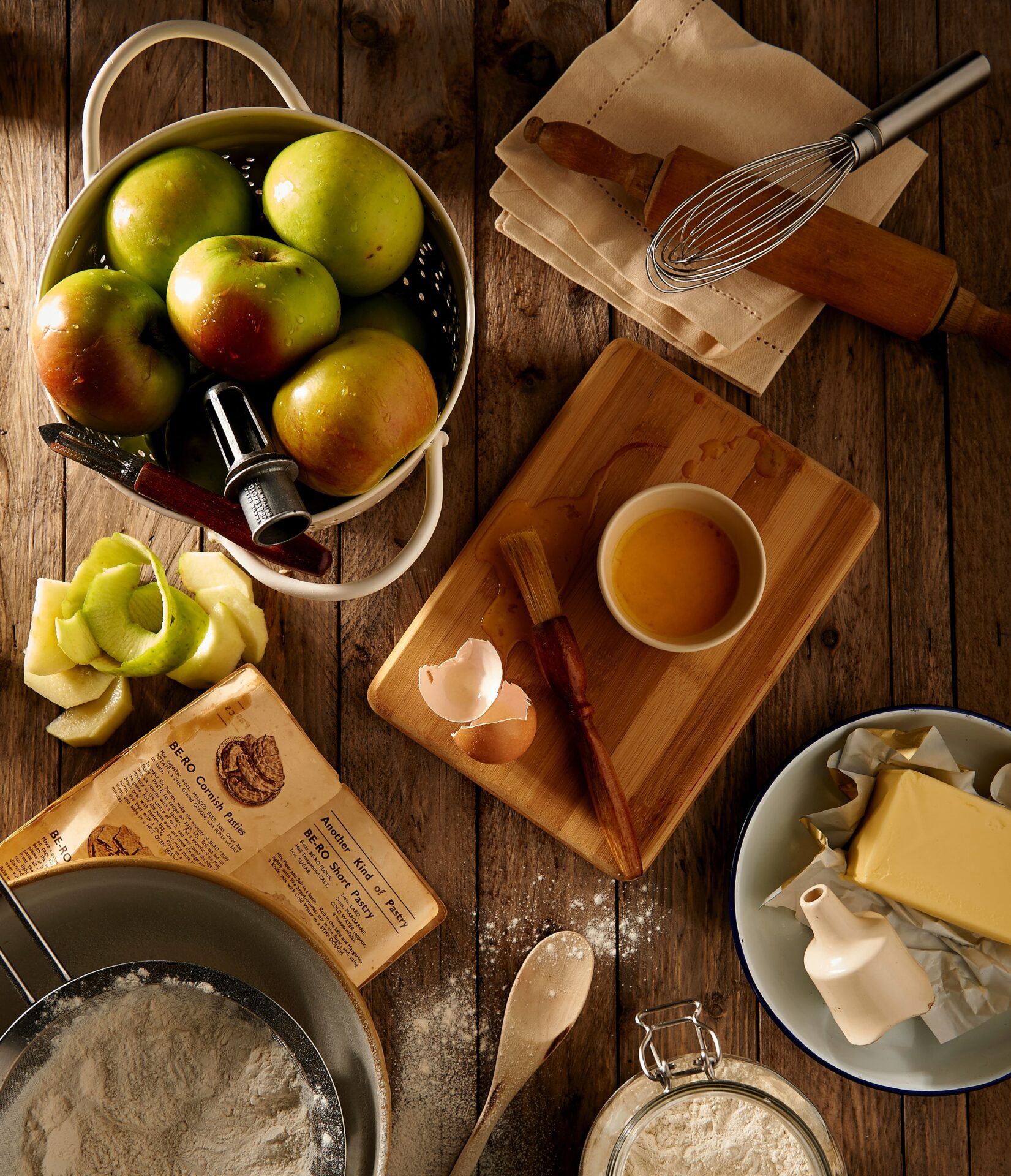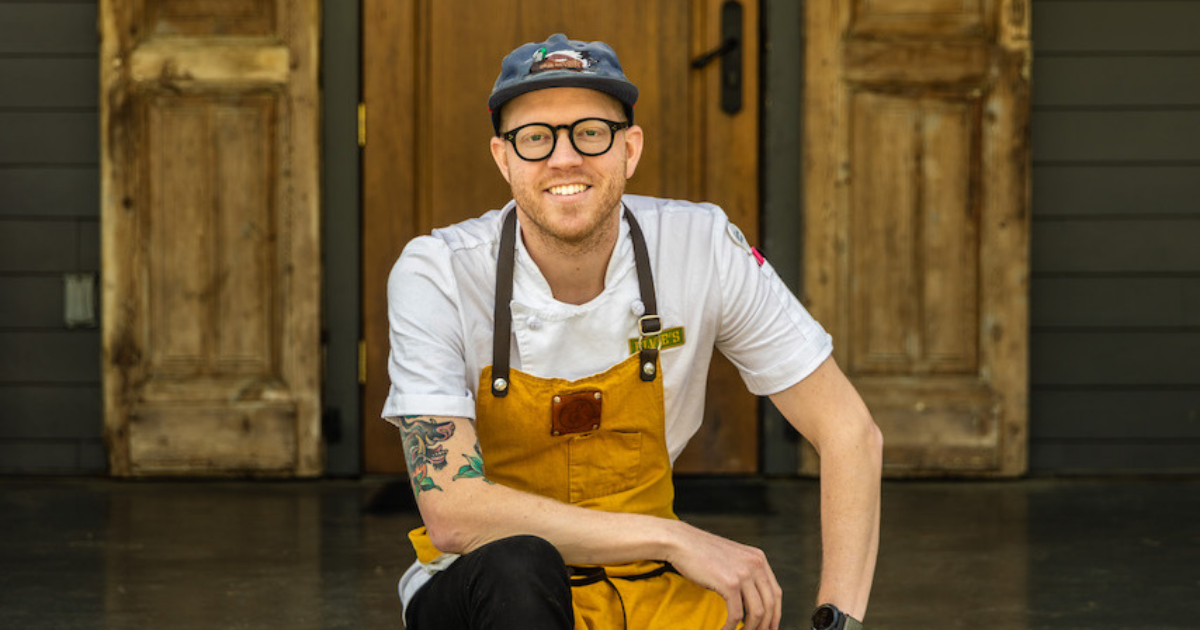To better understand Mississippi’s agricultural past, chef Hunter Evans collects Southern seeds with an eye toward what’s to come
Chef Hunter Evans doesn’t have a plot of land to grow on, nor a green thumb—but his Southern seed collection is as robust as anyone who might. What started as an interest in better understanding the history of Mississippi’s culinary roots became a mission to revive and utilize heirloom vegetables—even if he’s not growing them himself.
At Elvie’s, the restaurant Evans owns in his hometown of Jackson, Mississippi, the menu hinges on fresh produce, but also on strong storytelling—named for his grandmother, Elvie’s aims to reflect its namesake’s love of entertaining and sharing food.
With his seed collection project, Evans is carrying on the story of Mississippi agriculture, too. His interest was piqued when he was living and cooking in New York after culinary school and, feeling homesick, started visiting the public library to pick up books about the South. But as he dug into the history, especially around the South’s former landscape, he says, he “realized how devastating the Civil War was and how so much of our past was burned. It was people’s homes, but they were also burning farms and orchards. That’s where we started to lose some of the foodways.”
The questions “who contributed to Mississippi cuisine?” and “what is Mississippi cuisine?” were still circling in Evans’ head when he moved back to Jackson. “I had this idea of, ‘what if I could find people who are still growing these seeds?’ Maybe it was stuff that their grandmother was growing or seeds that were just passed down,” he says.

He put a message out in a farmers’ bulletin asking for old seeds, noting that he would collect them and have the produce grown for him. “I can’t grow anything—I don’t have the time to or the space—but I know all these farmers who can, and I buy the produce back by the pound.”
His biggest supplier became a man he only knew by his last name, Mr. Dickens. In their only meeting in January 2019, the older gentleman met Evans at a gas station where he pulled out a handful of plastic baggies filled with seeds he’d been keeping in a deep freezer. One by one, he went through and explained what they were—white velvet okra, Geechee peas, black peanuts, cow pumpkin.
Evans took thorough notes to capture the stories. That okra, for example, had been given to Mr. Dickens fifty years prior as a wedding gift from his father-in-law. There was an English pea he’d received from his wife’s mother who had been growing it since she was a little girl—he reckoned it was nearly 100 years old.
Other meet-ups led him to the kitchen of an elderly man hooked up to an oxygen tank—he gave Evans a chile in a medicine bottle. “One guy just mailed me some seeds and wrote me a letter saying that it was a vining okra that was in his family since the 1800s,” Evans says.
The next step was growing the seeds, which Evans did by recruiting farmers, like Gregg Davis of Cedar Tree Farms who volunteered to grow the white velvet okra. “He was like, ‘This is the most prolific okra plant I’ve ever grown.’ All summer, he just kept bringing big bags full of it. I tried to pickle as much as I could for our cheese and charcuterie boards, and I was frying it, everything,” he says. “To put on the menu, ‘Mr. Dickens okra,’ that’s not something that every restaurant or chef can do.”

Evans had to put the project on hold during the pandemic but plans to get the word back out this summer. “It’s about having a connection, to feel a little closer to the history of Mississippi’s cuisine and agriculture, and to the stories of the people and traditions of where we live.”
share
trending content
-
Taste the Gulf, Savor the Moment in Punta Gorda/Englewood Beach
by TLP's Partners -
Tips for Using Celery in the Kitchen With Chef Bhatt
by TLP Editors -
8 Cookbooks for Clean, Healthy Eating in the New Year
by TLP Editors -
Flour is a Southern Pantry Essential in This Nashville Kitchen
by Tate Jacaruso -
3 Delicious Ways to Use Carrots in the Kitchen
by Erin Byers Murray
More From At the Table
-
3 Delicious Ways to Use Carrots in the Kitchen
-
Clever Cassoulet With Houston Chef EJ Miller
-
10 Southern New Year’s Day Recipes to Bring Good Luck
-
12 Recipes for a Vegetarian Thanksgiving
-
A Simpler Thanksgiving









